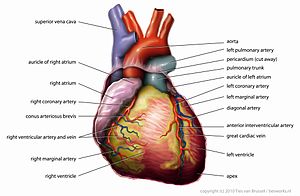The NYT reported on February 24 about increased heart attacks after job loss. Numerous studies have reported on stress, depression, and job loss increaseing heart attack risk. The latest study in 2009 led by Sarah A. Burgard, a professor of sociology and epidemiology at the University of Michigan, found that “persistent perceived job insecurity” was itself a powerful predictor of poor health and might even be more damaging than actual job loss. We recently posted a blog on behavioral health prevention. We have a series of behavioral health prevention articles on our website that address several areas of behavioral health prevention. I suspect that although the new mental health parity rules just release will dramatically increase healthcare costs one benefit may be increased behavioral health prevention of other medical illnesses such as heart disease. We at BHM can help develop cost-effective management programs using detailed data analysis to improve cost effective care. I will be posting more articles on this topic as reducing health care costs while maintaining quality is a national debate. Needless to say, it is helpful to note how heart attacks increased with depression in many recent studies.
 Heart Attacks Increased with Depression
Heart Attacks Increased with Depression
Depression is not only a significant concern for mental health but also has a noteworthy influence on physical health, particularly in relation to cardiac irregularities. Understanding this connection is essential for a comprehensive approach to healthcare.
- Emotional and Physical Toll: Depression takes an emotional toll, with individuals experiencing persistent feelings of sadness, hopelessness, and anxiety. These emotional struggles can have physical manifestations, including increased stress levels, changes in sleep patterns, and appetite disturbances, all of which can contribute to cardiac irregularities.
- Stress and Heart Health: Prolonged stress, often a companion of depression, can impact the autonomic nervous system. This can lead to an imbalance in the regulation of heart rate and rhythm, potentially resulting in cardiac arrhythmias or irregular heartbeats.
- Inflammation and Cardiovascular Risk: Depression is associated with increased inflammation in the body, a factor that contributes to the development and progression of cardiovascular diseases. Chronic inflammation can damage blood vessels, leading to conditions like atherosclerosis and hypertension, which, in turn, can contribute to cardiac irregularities.
- Medication Effects: Some medications used to treat depression may have cardiac side effects. It’s crucial for healthcare providers to carefully consider the choice of antidepressants and monitor patients for any adverse effects on heart health.
- Behavioral Factors: Individuals with depression often engage in unhealthy behaviors as coping mechanisms, such as smoking, excessive alcohol consumption, or poor dietary choices. These behaviors can further elevate the risk of heart problems and cardiac irregularities.
- Reduced Treatment Adherence: Depression can hinder a person’s ability to adhere to medical treatments and lifestyle changes necessary for managing cardiac conditions. This non-compliance can lead to worsened cardiac health and increased susceptibility to irregular heart rhythms.
- Interplay with Co-Existing Conditions: Depression often co-occurs with other medical conditions, such as diabetes or obesity, which can independently contribute to cardiac irregularities. The presence of depression can complicate the management of these comorbid conditions.
Understanding the intricate relationship between depression and cardiac irregularities is crucial for healthcare professionals. It underscores the importance of a holistic approach to healthcare that addresses both mental and physical well-being. Timely intervention, effective management of depression, and promoting heart-healthy lifestyles can help mitigate the risk of cardiac irregularities and improve overall health outcomes for individuals facing this dual challenge.
The fact that research and medical study show that heart attacks increase with depression deserves further exploration and attention.





